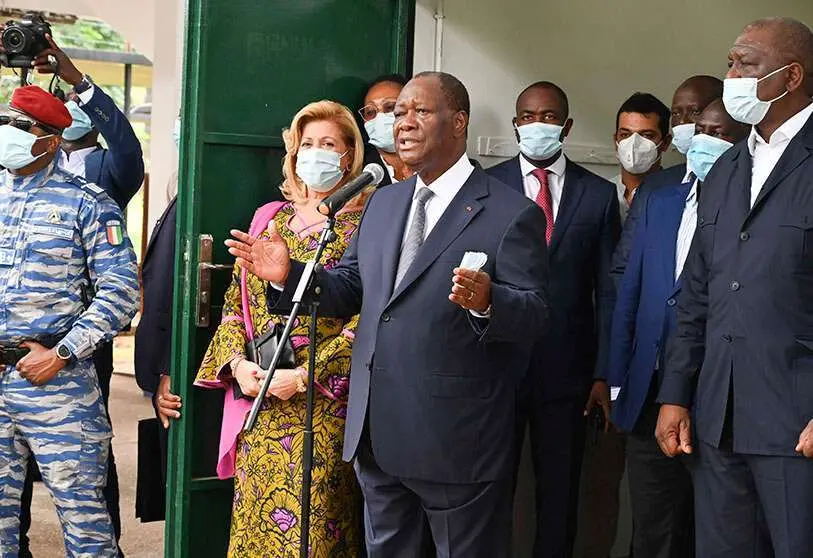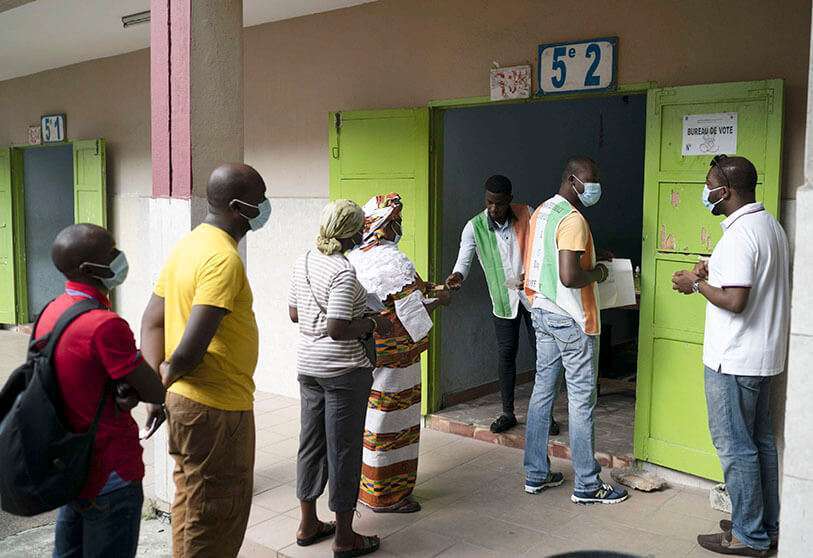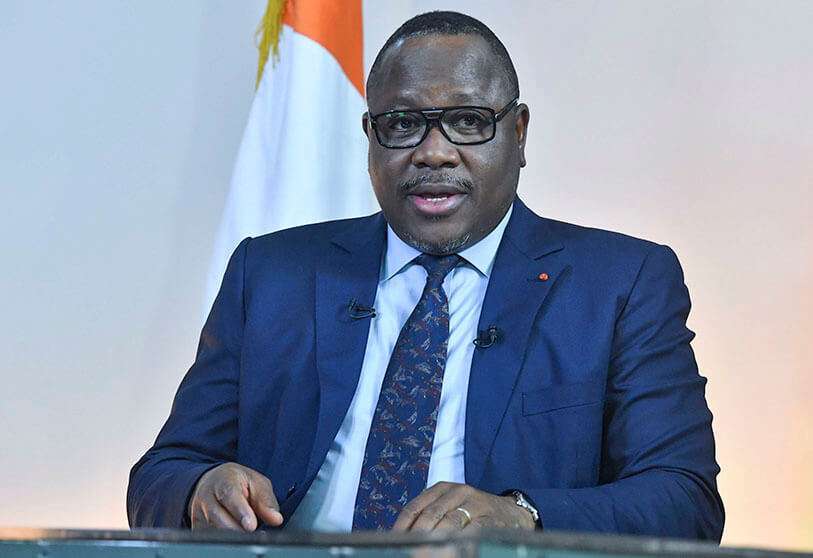Ivorian President re-elected with a dubious 94% result

The situation of democracy in Côte d'Ivoire has been called into question following the elections held on 31 October. According to the results proclaimed by the Independent Electoral Commission (IEC), Côte d'Ivoire's president, Alassane Ouattara, 78, was re-elected for a controversial third term with 94.27% of the votes in the first round.
The opposition, which considers the new mandate "unconstitutional" and no longer recognises Ouattara as president, announced on Monday that it is setting up a "National Transition Council" to form a "transitional government".
Following the results, thousands of citizens have taken to the streets in protest. These riots continue and many Ivorians fear further violence. Some 40 people have been killed since August, including at least nine since Saturday's vote.
On Tuesday, the European Union took note of the announcement of the provisional results and expressed "its deep concern at the provocative tensions and incitement to hatred that prevail and persist in the country around these elections".

According to CIS figures, the turnout, an important issue in this election because of the opposition's boycott, was 53.90%. Opposition activists had called for "civil disobedience" after some 5,000 polling stations were looted and blocked. In the end, according to the IEC, they were able to open 17,601 seats in 22,381 offices.
Independent candidate Kouadio Konan Bertin came in second with 1.99% of the votes, ahead of the other two candidates who called for a boycott, former President Henri Konan Bédié (1.66%) and former Prime Minister Pascal Affi N 'Guessan (0.99%). The ERC has three days to forward these results to the Constitutional Council, which has seven days to validate them or not.
Elected in 2010 and re-elected in 2015 Alassane Ouattara announced in March that he was giving up a new candidacy, but changed his mind in August following the death of his dolphin nominee, Prime Minister Amadou Gon Coulibaly.
Côte d'Ivoire's basic law establishes a maximum of two mandates, but the Constitutional Council considered that with the new Constitution adopted in 2016, the presidential term counter was reset to zero. This led to surprises within the opposition.

In Adjamé, a popular district of Abidjan, Hamed Dioma, a scrap metal dealer, tells AFP that he is "very, very happy". "ADO (Alassane Dramane Ouattara) has worked well for the country. It must continue. Not for us, but for our children. The opposition has failed. They presented their candidacies and then refused to go and vote. They knew they were going to lose," he explains.
The tone was quite different at Daoukro, the Bédié stronghold, where he will chair the "National Transition Council". "These results are a farce. There was no presidential election in Côte d'Ivoire. We will continue the civil disobedience until Ouattara leaves power," says Firmin, a young man on a barricade. In Abidjan, a hairdresser who did not vote said, "We are tired of politics! All we want is for it to stop," he told AFP.
On Monday night, detonations by unidentified persons, who were not injured, echoed in front of the houses in Abidjan of four opposition leaders. "We were with President Bédié. We heard eight shots. It was very loud. The windows shook," Maurice Kakou Guikahué, number two in the main opposition movement, told AFP.
While the African Union observer mission considers that "the election was conducted in a globally satisfactory manner", the Carter Center, a foundation set up by former US president and Nobel Peace Prize winner Jimmy Carter, is much more critical: "The political and security context made it impossible to organise a competitive and credible election," it tells the French news agency.

Thousands of Ivorians left the big cities in anticipation of riots. Ten years ago, after the crisis that followed the 2010 presidential elections, 3,000 people died after President Laurent Gbagbo (in power since 2000) refused to acknowledge his defeat against Mr Ouattara.
These events in Côte d'Ivoire, the world's largest cocoa producer, are raising fears of a new crisis in a region hit by Jihadist attacks in the Sahel and the recent coup d'état in Mali. To these events must be added a disputed election in Guinea and a strong protest movement among young people in Nigeria that is being repressed with great police brutality.








